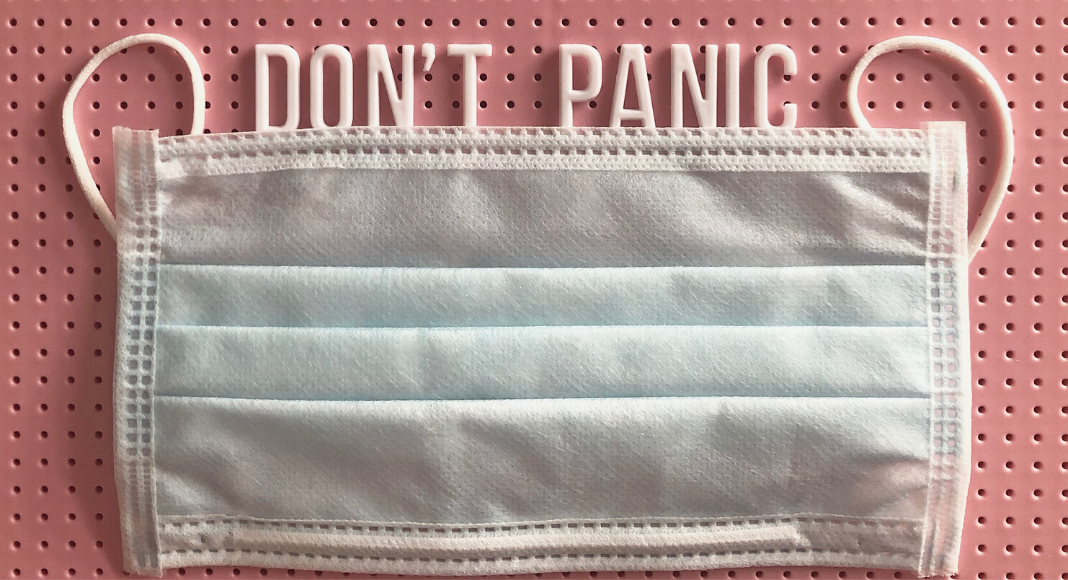With COVID-19 in all 50 states and our state essentially on lock-down, fear is as real to us as the virus.
Here’s a secret: it’s not going to change anything.
Honestly, it’s probably going to make your new homeschool life and spouse miserable and barely able to tolerate you. I know this because I am an overly-anxious, obnoxious researcher when scared. And guess what – it doesn’t help. It actually probably makes it 1,000 times worse.
So how do we rechannel fear?

Give It a Name
Naming your fear gives you the ability to recognize it. Say it out loud. Not even the generic fear but really get into what it is that you are afraid will happen.
Does that mean by naming it, magically it won’t take place? No, but it will allow you to face it versus trying to ignore it. That stops it from growing.
Manage Your Stress Hormones
When you feel threatened, your hypothalamus sets off a reaction. Long story short, your hormones set off adrenaline and cortisol. Adrenaline ups your blood pressure and heart rate, while cortisol increases the sugar in your bloodstream and lowers the functions that are necessary for a fight or flight response – functions such as the immune system and the parts of the brain that regulate emotion and fear.
If that wasn’t enough, anxiety, depression, heart disease, headaches, and sleep problems can all increase with long-term activation of stress. But your reaction may not be totally your fault. Life experiences and genetics can both play into your fight or flight responses.
Now that you’ve named and can identify your fear, you have to find ways to manage the stress when triggered. Your diet, physical activity and sleep matter. Yoga, meditation, hobbies, music, and friendships are also important. Laugh when you can, help others or the earth, and if you need it, reach out for professional help.
To practice social distancing, check out apps like Zoom, Facetime, or if you have relatives who are on Facebook, Messenger has video conferencing capabilities. Leave out sanitizers for mail carriers, take extra pasta to food banks, or figure out what skills you have that could help others.
If you are not in a place to help with that, think of what you can do around town. Text neighbors and see if they need anything left on the porch. Plant flowers outside. Send letters to family. Create art and give as gifts. And breathe.
Educate Yourself… Responsibly
Sometimes fear can be alleviated by education. When you are not sure about the facts, rumors can sway your thoughts. It is important that your sites are reputable and not clickbait. The CDC and WHO have information without being sensationalized. Local health authorities generally have websites that can give you more information, also.
There is a limit though. Especially with the coronavirus, too much information and the constant overload of bad news can play a number on your mental health. Limit yourself if you start to feel overwhelmed. We cannot control what is happening in the world and our communities, but we can regulate the amount that you take in.
Focus on What You Can Control
When life seems like it’s spinning beyond you, focus on the things that you can control. Wash your hands for 20 seconds or more. Don’t touch your face. Stay home unless you have no choice. If you have to work in the public, take precautions to keep safe. Keep your distance from people, wipe down shared equipment, use sanitizer or wash your hands.
At a bare minimum, you can control your mind and what you take in. Be mindful of who you talk to: Do they enhance your stress or calm you down?
Fear is Natural
Remember, fear is natural and often serves a purpose in keeping us safe. The kicker is to not let it consume us. Remember, if you can’t find your way out of a place of constant fretting, talk to someone. Seek help if you need to. We are not alone in this world. Don’t let fear replace the good we have in front of us.












